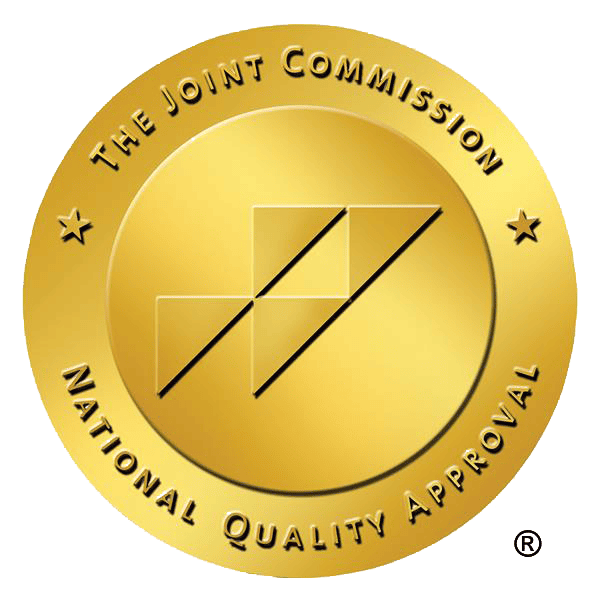Dual diagnosis disorder, or co-occurring disorder, refers to the simultaneous presence of a substance use disorder (SUD) and a mental health disorder. Often challenging to diagnose and treat, this condition requires specialized attention from medical professionals who can address both aspects effectively. The signs of dual diagnosis can vary greatly depending on the specific combination of disorders present in an individual.
Defining A Dual Diagnosis Disorder
A dual diagnosis disorder is the coexistence of a SUD and a mental health disorder, each influencing and exacerbating the other. This condition recognizes the inter-relatedness between addiction and mental disorders.
Dual diagnosis can involve various combinations, such as alcoholism with depression, cocaine addiction with anxiety disorders, or opioid dependence with post-traumatic stress disorder (PTSD). Identifying and understanding this type of disorder is crucial for providing effective treatment that addresses both components holistically.
Signs Of A Dual Diagnosis Disorder
The signs of a dual diagnosis disorder can manifest in many ways. However, certain common indicators may indicate the presence of this complex condition:
- Substance abuse: An obvious sign is the consistent and excessive use of alcohol, drugs, or other addictive substances to cope with emotional distress or mental health symptoms.
- Mood swings: Frequent fluctuations in mood, including periods of depression, irritability, anger, anxiety, or euphoria that do not align with external circumstances.
- Impaired judgment: Engaging in risky behaviors without considering potential consequences due to substance abuse and altered mental states.
- Withdrawal isolation: A tendency to isolate oneself from friends, family, and social activities. This withdrawal can be driven by mental health symptoms and the need to continue substance use in private.
- Physical symptoms: Unexplained physical ailments such as headaches, gastrointestinal issues, rapid weight loss or gain, insomnia, or chronic pain may indicate a dual diagnosis disorder.
- Poor performance: Decline in academic or work performance due to difficulties concentrating, decreased motivation, memory impairments, and an inability to meet responsibilities consistently.
- Relationship problems: Strained relationships with family members or significant others due to erratic behavior prompted by substance use and mental health symptoms.
- Treatment resistance/improper treatment: Difficulties responding to treatment for the mental health disorder can encourage substance use. Conversely, treating only 1 condition without addressing the other may result in limited progress or relapse.
Addiction And Dual Diagnosis Disorders
The relationship between addiction and dual diagnosis disorder is complex, with both conditions coexisting and influencing one another. There are several reasons why addiction may occur alongside a mental health disorder. Individuals may use substances as a form of self-medication to alleviate the distressing symptoms of their mental health disorder rather than seek treatment.
For example, someone struggling with depression or anxiety might turn to drugs or alcohol to temporarily relieve their emotional pain. In addition, both addiction and mental health disorders can stem from genetic predispositions, chemical imbalances in the brain, traumatic experiences, or environmental factors. These shared vulnerabilities increase the likelihood of developing both conditions simultaneously.
Determining which came first–the mental health disorder or addiction—can be complicated. It is not always clear-cut and can vary from person to person. In some cases, an individual may initially experience symptoms of a mental health disorder and turn to substances as a means of coping. As such, the mental health disorder precedes addiction.
However, in other instances, substance abuse may lead to or worsen pre-existing mental health issues that only become apparent the longer substances are used. For example, prolonged drug use can disrupt brain chemistry and contribute to developing psychiatric symptoms such as anxiety, depression, or psychosis. In this case, this would indicate the addiction came before the onset of the mental health disorder.
Treating A Dual Diagnosis Disorder
Treating a dual diagnosis disorder requires a comprehensive and integrated approach that simultaneously addresses both the substance use disorder and the mental health disorder. Some key components of effective treatment for individuals with dual diagnosis include the following:
Integrated Assessment:
A thorough evaluation is essential to identify and assess the specific combination of substance abuse and mental health disorders. This assessment helps develop an individualized treatment plan tailored to each person’s unique needs.
Dual Diagnosis Programs:
Specialized treatment programs designed specifically for co-occurring disorders are necessary to address both conditions and provide a comprehensive treatment plan.
Medication Management:
Some individuals may require medication to manage psychiatric symptoms or help with substance withdrawal. Appropriate medication management can alleviate symptoms, stabilize moods, and support recovery.
Therapy:
Individual, group, and family therapy play crucial roles in dual diagnosis treatment. Various therapeutic approaches can be particularly effective in addressing both conditions simultaneously.
Education:
Education about addiction, mental health disorders, coping mechanisms, triggers, and relapse prevention strategies is vital in helping individuals understand their conditions. During this time, they develop skills necessary for managing their symptoms effectively.
Lifestyle Changes:
Encouraging healthy lifestyle changes like regular exercise, proper nutrition, sleep, hygiene, and stress management techniques can significantly improve overall well-being and physical and mental health.
Supportive Services:
Connecting individuals with additional support services, such as peer support groups or aftercare planning, further facilitates long-term recovery success. By obtaining comprehensive care that addresses both aspects concurrently, dual diagnosis treatment offers individuals the best chance at achieving lasting sobriety and mental wellness.
Get Dual Diagnosis Treatment in A Serene County Setting in Austin, TX
Ideally located near Houston, Austin, and San Antonio, Prairie Recovery in Austin offers personalized dual diagnosis treatment in a serene country. Our care team works to help guide people in choosing evidence-based and holistic treatments that will best suit their needs.
Take the first steps of becoming substance-free and achieving better mental health by contacting us today.






